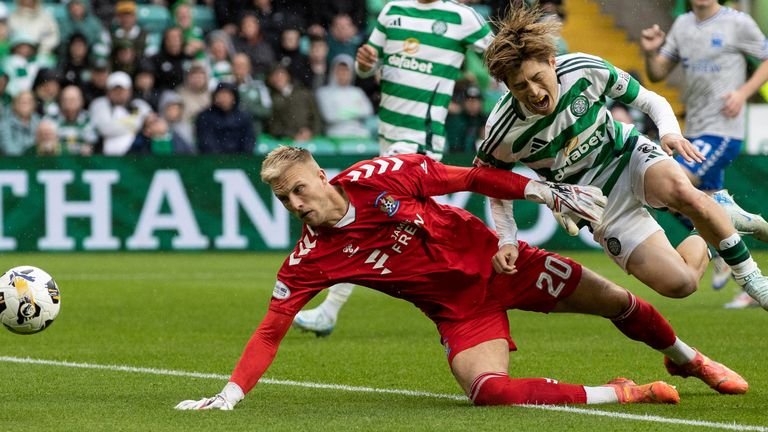Fixed Match Information
Fixed Match Information
Manipulated Fixed Matches
Day: Thursday Date: 12.09.2024
First Match: TPS – JIPPO | Tip: Under 4.5 | Odds: 1.20 | Result: 0:1 | LINK | WON
Second Match: Hilden – Schonnebeck | Tip: Over 1.5 | Odds: 1.13 | Result: 2:3 | LINK | WON
Third Match: Alsterbruder – Halstenbek-Rellingen | Tip: Over 1.5 | Odds: 1.10 | Result: 2:2 | LINK | WON
E-mail support: fixedmatchgloball@gmail.com
WhatsApp support: +1 (508) 939-3661
Username for Telegram: @fmatchglobal
Introduction to Rio Ferdinand
Rio Ferdinand stands among the elite defenders in football history. Celebrated not just for his defensive prowess but for redefining the role of a modern center-back. From his humble beginnings in Peckham, South London, to becoming a key figure for Manchester United and the England national team. Ferdinand’s journey tells a compelling story of talent, resilience, and dedication. His remarkable career spans two decades, filled with memorable moments, challenges, and successes that shaped his legacy in football. In this piece, we will explore the many facets of his life his rise from a promising young talent to a revered veteran, his leadership on the field, his off-the-pitch endeavors, and the lasting impact he continues to have on the game. Gain the winning edge with Fixed Match Information your go-to source for reliable and accurate betting insights.
Early Life and Beginnings
Rio Gavin Ferdinand was born on November 7, 1978, in Peckham, a district known for its vibrant but tough environment. Growing up in a family passionate about sports, Ferdinand quickly developed an affinity for football. He played on the streets and in local parks, often alongside his brother Anton, who also went on to become a professional footballer. Ferdinand’s early life wasn’t without its difficulties; his parents separated when he was young, and he had to navigate the challenges of a single-parent household. Despite these obstacles, his mother, Janice Lavender, always encouraged him to pursue his dreams. At the age of 11, Ferdinand joined Eltham Town and then moved to the renowned West Ham United Academy, where his potential started to blossom.
Rise Through the Ranks at West Ham United
West Ham United’s Academy, often referred to as the ‘Academy of Football,’ has produced many great players, and Ferdinand was no exception. His progression through the ranks was swift, and he made his first-team debut in 1996 at the age of just 17. Under the guidance of manager Harry Redknapp, Ferdinand quickly established himself as a key player. He possessed a rare combination of physical strength, technical ability, and football intelligence, which set him apart from his peers. His performances at West Ham showcased a defender who was comfortable with the ball at his feet, capable of making precise passes that could turn defense into attack in an instant.

The Big Move to Leeds United
In 2000, Leeds United paid a then-record fee of £18 million to bring Ferdinand to Elland Road, making him the most expensive defender in the world at the time. This move was not just a testament to his growing reputation but also a significant step in his career. At Leeds, Ferdinand continued to shine, especially in the UEFA Champions League, where he played a crucial role in the team’s unexpected run to the semifinals. His leadership qualities came to the fore during this period, and he was soon handed the captain’s armband, a role he embraced with maturity and confidence. The exposure to high-level European football further honed his skills, preparing him for the next leap in his career.
The Transfer to Manchester United
Ferdinand’s impressive performances at Leeds caught the eye of Sir Alex Ferguson, who saw him as the perfect addition to Manchester United’s defense. In 2002, United signed Ferdinand for a then-record fee of £30 million, making him the most expensive British footballer at the time. The pressure of the hefty price tag never fazed Ferdinand; instead, he thrived under the spotlight. His arrival marked the beginning of a new defensive era at Old Trafford, as he brought a level of calmness and composure that had been missing. Ferdinand’s ability to read the game, intercept passes, and carry the ball out from the back revolutionized the team’s defensive play.
Forming a Legendary Partnership with Nemanja Vidić
One of the defining features of Ferdinand’s career at Manchester United was his partnership with Serbian defender Nemanja Vidić. Together, they formed one of the most formidable defensive pairings in Premier League history. While Ferdinand brought elegance, pace, and technical skill, Vidić complemented him with his no-nonsense, physical approach. This dynamic duo was crucial to United’s success, as they provided a solid foundation that allowed the team’s attacking talents to flourish. Over the years, Ferdinand and Vidić built an almost telepathic understanding, making them exceptionally difficult to break down. Their partnership played a pivotal role in United’s dominance during the 2000s, leading the club to numerous titles.
Successes and Triumphs at Manchester United
During his 12-year stint at Manchester United, Ferdinand won six Premier League titles, two League Cups, and the UEFA Champions League in 2008. Each of these triumphs highlighted different aspects of Ferdinand’s game, from his defensive resilience to his leadership qualities. The 2007-08 season stands out as a peak, with United securing both the Premier League and Champions League titles. Ferdinand’s performances in the Champions League, particularly in the final against Chelsea, were instrumental in United’s success. He captained the team in that match, leading by example as United triumphed in a dramatic penalty shootout. His ability to perform at the highest level in the biggest games cemented his status as one of the best defenders in the world.
Challenges, Injuries, and Resilience
Despite his many successes, Ferdinand’s career also faced its fair share of challenges. Injuries often plagued him, especially in the latter stages of his career, forcing him to adapt his playing style. He struggled with back and knee problems, which sometimes kept him sidelined during critical periods. Additionally, Ferdinand faced controversy in 2003 when he missed a mandatory drug test, resulting in an eight-month suspension. This incident threatened to derail his career, but Ferdinand’s resilience shone through. He returned from the ban determined to prove himself, and his performances on the pitch spoke volumes about his character and dedication to the game.
England National Team: Highs and Lows
Ferdinand’s international career with England spanned over a decade. Earning 81 caps and becoming one of the team’s most reliable players. He represented England in three World Cups (1998, 2002, and 2006) and was a key figure in the defense. Despite the national team’s struggles on the big stage, Ferdinand’s individual performances were often standout moments. He brought stability to England’s backline and was known for his ability to read the game and make crucial interceptions. However, injuries and managerial changes often disrupted his international career, and he never quite achieved the same level of success with England as he did at the club level. Stay ahead of the game with Fixed Match Information your secret to accurate and winning bets.
A Leader on and off the Pitch
Throughout his career, Ferdinand’s leadership qualities were evident both on and off the pitch. At Manchester United, he was often seen organizing the defense, rallying his teammates, and setting high standards. He wasn’t just a leader by words but by actions his commitment to training, his professionalism. And his ability to remain composed in high-pressure situations set an example for others to follow. Off the pitch. Ferdinand also used his platform to speak out on various social issues, from racism in football to mental health awareness. He became a role model not just for his footballing skills but also. For his willingness to stand up for what he believed in. Fixed Match Information your key to consistent wins with precise and dependable insights.
The Changing Role of Defenders and Ferdinand’s Influence
Ferdinand’s playing style helped change perceptions of what a defender could be. Traditionally, defenders were primarily judged on their physicality and ability to clear danger. However, Ferdinand brought a new dimension to the role by showcasing that defenders could also be technically gifted, comfortable on the ball, and integral to a team’s attacking play. He often started attacks from the back with his accurate passing and was not afraid to carry the ball forward. This evolution of the defensive role influenced a generation of young players and managers who now sought defenders who could do more than just defend.
The Decline and Departure from Manchester United
As Ferdinand entered his thirties, the physical demands of top-level football began to take their toll. Although he remained a valuable squad member, his appearances became less frequent due to recurring injuries. In 2014, after 455 appearances for Manchester United, Ferdinand left the club. His departure marked the end of an era, as United had to rebuild their defense following the exit of one of their most iconic players. Ferdinand’s time at the club left an indelible mark, not just for the trophies won but for the standard of excellence he set during his tenure.
Final Playing Days and Retirement
After leaving Manchester United, Ferdinand signed with Queens Park Rangers in 2014. However, his time at QPR was short-lived, as the team struggled in the Premier League, and Ferdinand found himself battling fitness issues. In 2015, he announced his retirement from professional football, closing the chapter on an illustrious playing career. His decision to retire allowed him to focus on other ventures, including his growing media presence and various business interests. Although his playing days were over, Ferdinand’s influence on the game remained strong, as he transitioned into new roles that allowed him to stay connected to football. Unlock success with trusted Fixed Match Information ensuring every bet is backed by expert predictions.
Life After Football: Punditry, Business, and Advocacy
Since retiring, Ferdinand has enjoyed a successful career as a football pundit, bringing his expert insights and charismatic personality to television screens worldwide. His candid analysis and in-depth understanding of the game have made him a popular figure in football media. Beyond punditry, Ferdinand has also ventured into business, launching his clothing line and investing in various startups. Additionally, he remains actively involved in charitable work through the Rio Ferdinand Foundation, which aims to support young people in disadvantaged communities. His advocacy for mental health awareness, especially following the loss of his wife Rebecca, has also earned him widespread respect.
No Limit Bet1x2 – Luxury Fixed Matches – Fixed Match Draw Tips
Personal Life, Family, and Resilience
Ferdinand’s personal life has been marked by both joy and tragedy. In 2015, his wife Rebecca Ellison passed away after a battle with cancer. Leaving Ferdinand to care for their three young children. This devastating loss brought him to the forefront of discussions about grief and mental health. His openness about his struggles resonated with many. Highlighting the human side of a footballer often seen as invincible on the pitch. Ferdinand has since found happiness again, marrying Kate Wright in 2019. And together they have continued to build a loving family environment. His journey through personal hardship has shown his resilience, strength, and commitment to his loved ones.
